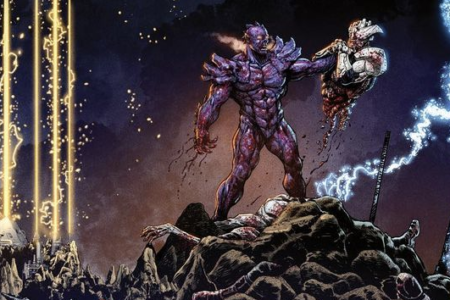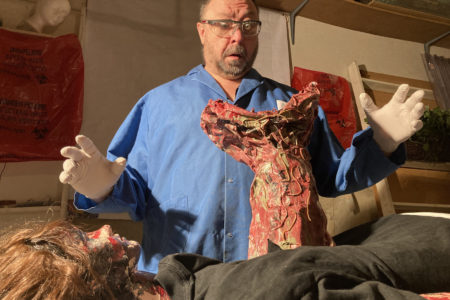
VIDEO STORES STILL EXIST!
Fanzine, Edited by Ted Gilbert, 60 pgs, Lunchmeat VHS, lunchmeatvhs.com, $10 USD
As far as Toronto goes, After Dark Video always felt like an odd location for a cult rental store. A little too north on Bathurst to appreciate the booming goth scene on Queen Street and a little off-kilter for the surrounding young families. I was too small to wander in myself, but it lives on in thrift store staff shirts and as a backdrop in Atom Egoyan’s 1989 movie Speaking Parts.
These days any video store is considered an odd sight, regardless of neighbourhood. When I tell folks I’m picking up a DVD from my current local, Eyesore Cinema, they usually respond in shock. “I didn’t know those still exist!”
It is on that point of conversation that Lunchmeat VHS has produced the zine VIDEO STORES STILL EXIST!. A survey of sorts of current-day American video stores, asking owners about their mission statement, their favourite customers, the weirdest thing they’ve ever found in the return box, if they stock pornography, the basics. Los Angeles’ Vidiots, Baltimore’s Beyond Video, Oregon’s infamous last-standing Blockbusters. Some stores have been opened since the 2000s, most persevering since the ‘80s, but a lot of predominating trends emerge throughout.
These places have become less of a store and more a community and artistic institution. Many have become non-profit establishments, relying on hybrid business models that may include running a microcinema or relying on crowdsourcing sites. Their most popular rentals aren’t the biggest blockbusters of the day, but international film, anime, horror, Criterion releases, A24 movies. People want beloved films that have only become harder to track since streaming took over the industry. David Lynch’s manic Nic Cage romance Wild at Heart and Elaine May’s sad-sack Charles Grodin comedy The Heartbreak Kid are mentioned several times, across clienteles and statelines.
Streaming has not made movies more accessible, despite the illusion. Ownership, rights, mergers, closures, petty politics, Disney eating Fox, Discovery Dismantling HBO Max, it all makes virtual filmgoing a tenuous thing. The average closet-sized mom n’ pop probably has a vaster catalogue than Netflix, and their survival is essential for the arts.






